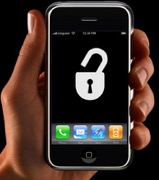On Unlocking Phones: What is the Real Problem?

Clearly the situation in the US is more complicated. AT&T argues in its Policy Blog “Bottom line: We unlock our customers’ devices”. But if you look at the comments on AT&T’s blog, 14 at this writing, clearly the customers disagree on the practicality of unblocking AT&T phones in the real world.
One poster wrote:
That’s the first time I’ve ever heard of this policy. You guys refused to unlock my Captivate for 13 months, and you refused it for my Galaxy S III even now, saying I must wait 18 months.
When I bought my iPhone 5 at full retail, it took me three weeks to get you guys to do it, because you required faxing at specific moments, and all sorts of weird stuff. You guys refused to unlock my iPhone 4 until after my contract term expired, and even then, it took four tries to get someone who actually didn’t tell me that you can’t unlock it..
I don’t know what’s going on there, but its obvious you aren’t following that policy you describe.
Another wrote:
Spin, Spin, Spin, you won’t unlock used iPhones purchased on Amazon, eBay or Craigs list. You demand that the requester provide proof of purchase from an “authorized” re-seller and that would only be one of your or Apples retailers. You have and Apple have the IMEI’s so you know if they are out of the contract period it should not matter if someone sold it on eBay or Amazon. As long as it is not stolen and no longer in the contract period, UNLOCK IT.
T-Mobile seems to have a clear, but not necessarily reasonable, policy for unlocking phones. By comparison, VZW’s policy was impossible to find on their website. While the CTIA site has viewpoints on many telecom policy issues, they are mute on this one.
But let’s get to the root of this problem: Most discussions I have seen so far deal with overseas use of US cell phones and the desire of users to buy overseas SIM cards when they travel. (Users might also want to unlock phones to switch carriers, but that appears to be a minority of the users who show up in blogs on the topic.)
As I have written before, I have a minimal cost unlocked GSM phone that I use for foreign travel because US overseas roaming rates are just too high. Indeed, US cellphone rates and wireline rates for much international use are so high they may actually be illegal - a topic the cellphone industry and FCC do not seem interested in.
Thus the current cell phone unlocking discussion, which has reached to the White House, may be basically another manifestation of excessive calling rates for international calls. At least the White House responds to petitions, something that FCC has a poor record of dealing with even when petitions come from major industry groups.



![Validate my RSS feed [Valid RSS]](valid-rss-rogers.png)

